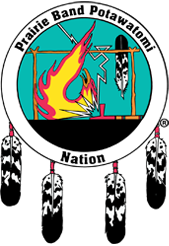January 24, 2013 –
Washington, DC – On Monday January 21, 2013, NCAI President Jefferson Keel attended President Barack Obama’s second Inaugural Address joining members of Congress, Cabinet officials, Justices of the Supreme Court, former presidents, governors, other dignitaries, and civil rights organization leaders on the inaugural platform to usher in the 44th President of the United States’ second term. President Keel began the morning with the first family and guests of the Administration at St. John’s Church for prayer services near the White House.
“Tribal nations were represented throughout the Presidential Inauguration events this weekend and I was proud to have represented Native people in honoring the President as he begins his second term. From the morning prayer to his ceremonial swearing in to the Inaugural Parade, tribal nations were present, a reminder that as sovereign nations, we are also active members of the American family of governments,” said NCAI President Jefferson Keel in a statement from the Smithsonian’s National Museum of the American Indian where NCAI held a tribal nations strategy session the day after the Inauguration.
The Inauguration included Native people in many ways. The official Inaugural Parade featured six Native groups including; Kamehameha Schools Warrior Marching Band, Honolulu, Hawaii; Native American Women Warriors, Pueblo West, Colorado; Navajo Nation Band, Arizona, New Mexico, and Utah; The Tribes of North Dakota, North Dakota; Utuqqagmiut Dancers, Wainwright, Alaska; and the Wind River Dancers, Wind River Indian Reservation, Wyoming. Two Native American inaugural balls were also held over the weekend.
NCAI’s event on Tuesday January 22nd, “Setting Our Nation-To-Nation Agenda for the Next Four Years: Tribal Nations, Congress, and the Obama Administration”, focused on moving immediately on key priorities for the next four years. The meeting brought together tribal leaders and advocates who were in Washington for the inaugural weekend to form a unified path for working with the Obama Administration and all members of Congress over the next four years. Among the presenters were Kevin Washburn, Assistant Secretary of Indian Affairs, Jodi Gillette, the White House Senior Policy Advisor for Native American Affairs, and Charlie Galbraith Charles Galbraith the White House Associate Director from the Office of Intergovernmental Affairs and Public engagement.
“Although Native Americans or tribes weren’t mentioned specifically in the President’s inaugural speech, tribal nations are a priority of this Administration and it was reflected in our prominence in the weekend’s events. The fact that as the President of NCAI, I was able to be with the President during the prayer service and on the platform to commemorate his inauguration, speaks volumes to our nation-to-nation relationship,” continued Keel.
“We’re focused on major issues in the near term and in the years to come. Immediately we are continuing our advocacy efforts to call on members of Congress to reauthorize the Violence Against Women Act (VAWA). In addition, fixing land into trust challenges presented by the Supreme Court’s Carcieri decision remains at the top of our priority list. In the months ahead we’ll monitor the government’s federal trust responsibility to uphold the tribal budget and focus on the implementation of major legislation like the Affordable Care Act and the Tribal Law & Order Act. While there is so much more to do, we’re very optimistic as NCAI, tribal nations, and advocates begin our work in partnership with the 113th Congress and the Obama Administration,” Keel concluded.
President Keel will next deliver a major address at the 2013 State of Indian Nations, scheduled for the February 14th at 10:30 a.m. eastern from the Newseum in Washington, DC – just days after the President Obama’s State of the Union address. The event will be broadcast live from www.NCAI.org/live and on television and followed by a Congressional Response and a Question & Answer session.
